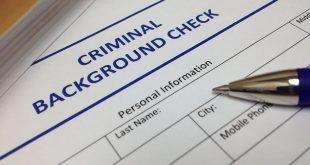 Your credit score is the most important factor when it comes to borrowing, as without a good score you’ll be locked out of the most affordable forms of credit.
Your credit score is the most important factor when it comes to borrowing, as without a good score you’ll be locked out of the most affordable forms of credit.
Having a poor credit record isn’t necessarily a disaster though – you can improve it within two years provided you have no County Court Judgments or bankruptcies to your name. So read on for how to understand and boost your credit score in 5 easy ways.
Understanding your Credit Score
Your credit score is assessed by looking at the following:
- The length of your credit history
- Repayment history
- The amount of times you have applied for credit
- How much debt you have and how close to the credit limit you are on credit cards or overdrafts
- Type of debt you have. If your debt is restricted to one type, eg, credit cards, then lenders will be suspicious of how you handle other types of debt
If you don’t know what your current credit score is, then it’sd vital you check as it changes all the time. Use a company to see your credit record and read analysis of your report to help build your score like Credit Cleaner for example, but be sure to shop around for various companies before selecting.
1 – Changing Errors
Once you have read your report, you need to check it for errors. Mistakes can be made, and even one small piece of misinformation can badly impact your ability to borrow. If you do spot something that is wrong, then write to the lender concerned and ask them to make changes. If this fails, contact the Financial Ombusdman, who can help.
2 – Keep Addresses Up to Date
Many people end up with defaults on their file accidentally as a result of not keeping credit providers informed of changes to address. This can be disastrous, especially if you forget about making a payment or clearing a debt. Always advise credit and store card companies when you move, and never just cut up a card. Close down the account.
3 – Make all Future Payments on Time
The factor most heavily weighted in your credit score is your payment history. Even one default or late payment can count against you, so NEVER miss a payment again. Either set up direct debits, or keep a payment schedule calendar. This will help insure you against any further damage.
4 – Pay off Debt
The amount of debt you have makes up 30% of your credit score. Paying this off will improve your score, so any spare cash should be devoted to paying these off. However, check to see if early repayment fees apply.
5 – Rebuild your Credit but Avoid Further Debt
It’s important to show potential lenders that you can manage credit sensibly, and unfortunately borrowing more is part of the prescription. To do this without incurring further debt or costs, use a credit card available to those with poor credit. Spend a small amount on it each month, then repay IN FULL at the end of the month to avoid fees or further debt. Neither should you withdraw cash with a card, as you will pay interest on the withdrawal.
Wendy Lin is an artist and entrepreneur. She is an activist for women’s rights and is particularly passionate about fighting for gender equality in the workplace.
